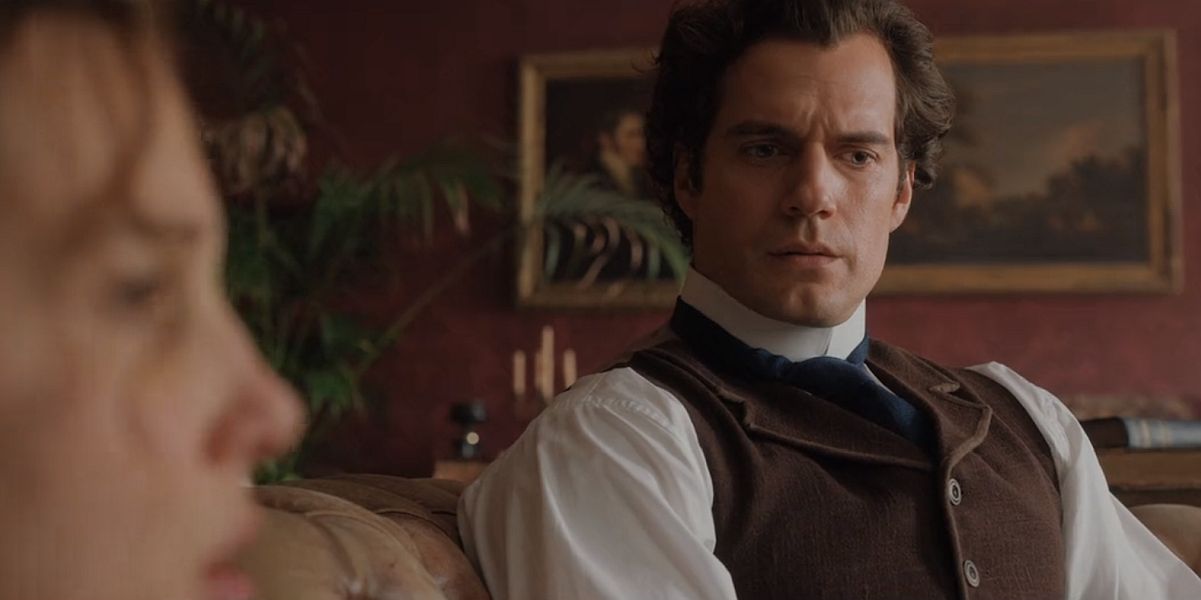Netflix Responds To Enola Holmes Lawsuit

Sherlock Holmes is one of the most popular fictional characters who has ever been created. He's been seen countless times since Sir Arthur Conan Doyle created him, in books written by others, in film and on television. Most recently Sherlock appeared portrayed by Henry Cavill in the Netflix film Enola Holmes, and it's that film that has seen the estate of Conan Doyle file a lawsuit against Netflix and other entities involved in the film, and now they have responded.
While the majority of Sir Arthur Conan Doyle's Sherlock Holmes are in the public domain, the last batch of them, the stories which make up The Casebook of Sherlock Holmes, are still under copyright, and the estate of Conan Doyle claims that the film Enola Holmes violates that copyright because the movie shows Sherlock Holmes in a form that he was only seen in those stories. However, in a motion (via THR) filed on behalf of Netflix, Legendary Pictures, original Enola Holmes author, Nancy Springer, and the movie's writer Jack Thorne and director Harry Bradbeer, attorney Nicolas Jampol, argues that ideas and emotions are not subject to copyright. The motion reads in part...
In this case, even if the Emotion Trait and Respect Trait were original to copyright protected works, which they are not, they are unprotectable ideas. Copyright law does not allow the ownership of generic concepts like warmth, kindness, empathy, or respect, even as expressed by a public domain character — which, of course, belongs to the public, not Plaintiff.
Sherlock Holmes is traditionally portrayed as a somewhat emotionless, analytical creature. The version played by Henry Cavill in Enola Holmes is certainly a warmer person than we usually see in TV and the movies. While that might be the case, the defendants are arguing that the character of Sherlock Holmes is in the public domain, and as such, specific nuances of the character, like his emotions are not subject to copyright.
The suit also goes a step further and claims violation of the Sherlock Holmes trademark, arguing that by calling the film Enola Holmes, there is an implication that the movie is endorsed by the Conan Doyle Estate. To that, the defendants argue that the estate of Conon Doyle is trying to use trademark law incorrectly, to do what copyright law is designed to do, but in this case cannot because of the previously mentioned public domain issue....
Here, Plaintiff attempts to use trademark law to do what copyright law can no longer do: prevent others from freely using and adapting Sherlock Holmes in their own works. But this is not the function of trademark law. Allowing Plaintiff to prevent the creation of new works featuring public domain material runs contrary to the 'carefully crafted bargain' embodied in copyright law, and Plaintiff’s attempt to create a perpetual copyright should be rejected.
This will certainly be an interesting case as it could have long term implications on copyright and trademark law, both for Sherlock Holmes specifically as well as other fictional characters that are either in the public domain, or may be about to be so.
CINEMABLEND NEWSLETTER
Your Daily Blend of Entertainment News

CinemaBlend’s resident theme park junkie and amateur Disney historian, Dirk began writing for CinemaBlend as a freelancer in 2015 before joining the site full-time in 2018. He has previously held positions as a Staff Writer and Games Editor, but has more recently transformed his true passion into his job as the head of the site's Theme Park section. He has previously done freelance work for various gaming and technology sites. Prior to starting his second career as a writer he worked for 12 years in sales for various companies within the consumer electronics industry. He has a degree in political science from the University of California, Davis. Is an armchair Imagineer, Epcot Stan, Future Club 33 Member.
Most Popular





